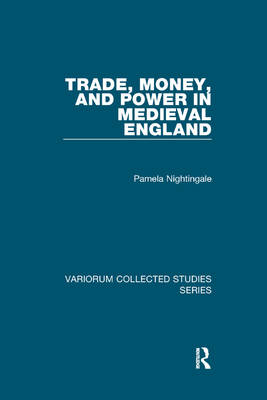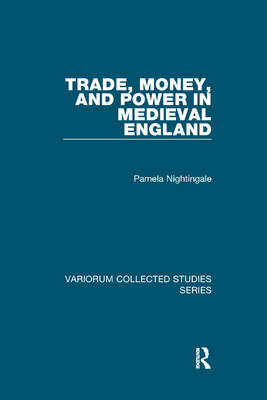
- Afhalen na 1 uur in een winkel met voorraad
- Gratis thuislevering in België vanaf € 30
- Ruim aanbod met 7 miljoen producten
- Afhalen na 1 uur in een winkel met voorraad
- Gratis thuislevering in België vanaf € 30
- Ruim aanbod met 7 miljoen producten
Zoeken
Omschrijving
The sixteen articles in this collection analyse the contribution made by overseas trade, and the wealth in coin which it created, to the development of the English economy and locate this in an European-wide setting. In time, they range from the late Anglo-Saxon period up to the advent of the Tudors. The papers include general surveys of the importance of coinage and credit in the rise and decline of a market economy, and of the way that credit functioned in a society that lacked reliable supplies of bullion and which was also subject to the scourges of warfare and devastating disease. They illustrate, too, how from the tenth century the English crown used its control and exploitation of the coinage as part of a sophisticated fiscal system which helped create the precocious power of the English state. The author further shows how the wool trade altered the geographical pattern of wealth and enriched peasants, landowners and merchants, while the competing interests involved in the trade also cause political conflicts in Parliament and in the government of London during the period when London was establishing itself as the political capital and the financial centre of the kingdom.
Specificaties
Betrokkenen
- Auteur(s):
- Uitgeverij:
Inhoud
- Aantal bladzijden:
- 366
- Taal:
- Engels
- Reeks:
Eigenschappen
- Productcode (EAN):
- 9781138375208
- Verschijningsdatum:
- 19/12/2018
- Uitvoering:
- Paperback
- Formaat:
- Trade paperback (VS)
- Afmetingen:
- 156 mm x 234 mm
- Gewicht:
- 512 g

Alleen bij Standaard Boekhandel
+ 195 punten op je klantenkaart van Standaard Boekhandel
Beoordelingen
We publiceren alleen reviews die voldoen aan de voorwaarden voor reviews. Bekijk onze voorwaarden voor reviews.











